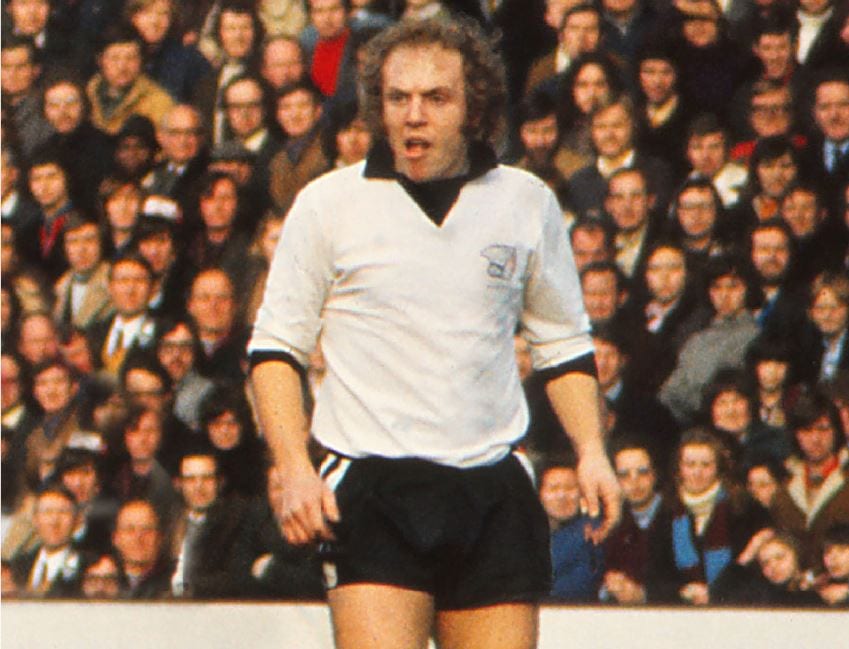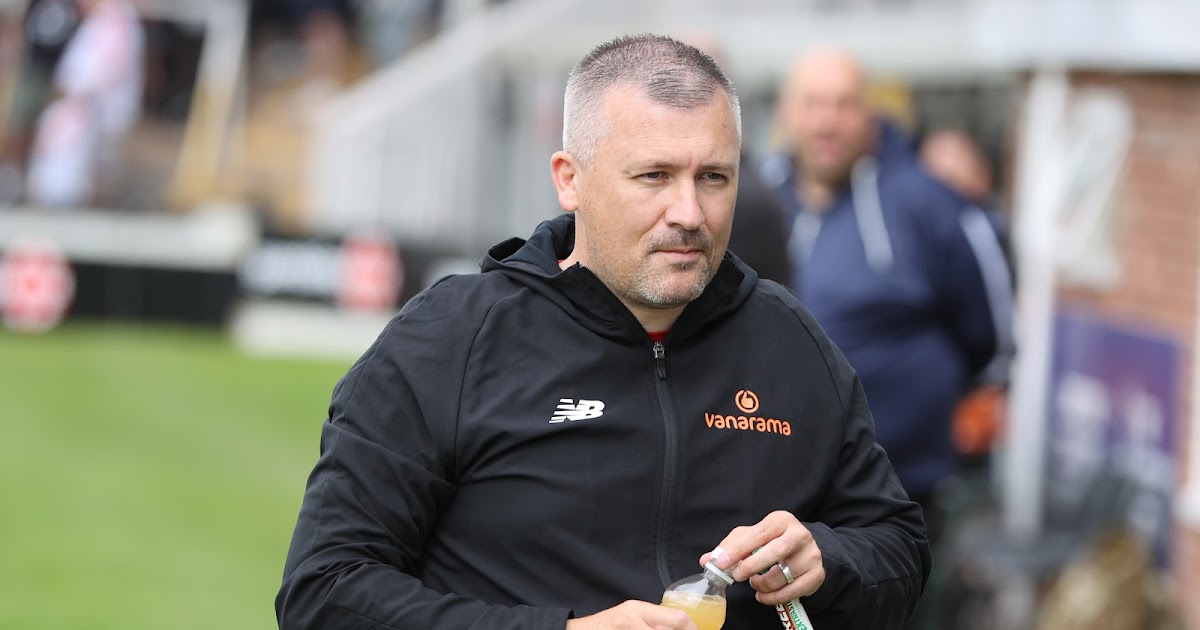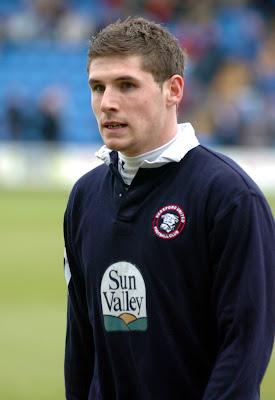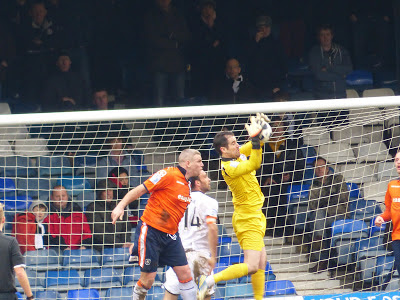Matt Healey continues the series.
Richard “Ricky” George was born in Barnet on June 28, 1946. He started at Tottenham Hotspur and later played in the Football League with Watford and Oxford United. He dropped into the non-league game, and when Hereford United signed him in early 1971, he was playing for Barnet.
George told me how the signing happened.
“My mate Billy Meadows was playing for Hereford and told me that John Charles was interested in signing me. It was an enormous compliment to hear that, they assumed I was cup tied in the FA Trophy, but in fact a few months earlier I didn’t play in Barnet’s loss to Kidderminster Harriers in the First Round. I had a bout of tonsillitis and missed out, as soon as I told Billy the news that I could play and was eligible, John Charles snapped me up pretty quickly.”
The FA Trophy debuted during the 1969/1970 season to give non-league players the opportunity to reach Wembley. George and Meadows had suffered FA Trophy heartbreak the previous season at Barnet.
“We played Macclesfield in a semi-final at Stoke City’s ground and lost 1-0, so a year later we would have another opportunity of reaching a Wembley final,” said George.
On April 3, 1971, Hereford United travelled to the neutral venue of Leicester City’s then Filbert Street ground to take on Southern League rivals Hillingdon Borough in the Semi Final.
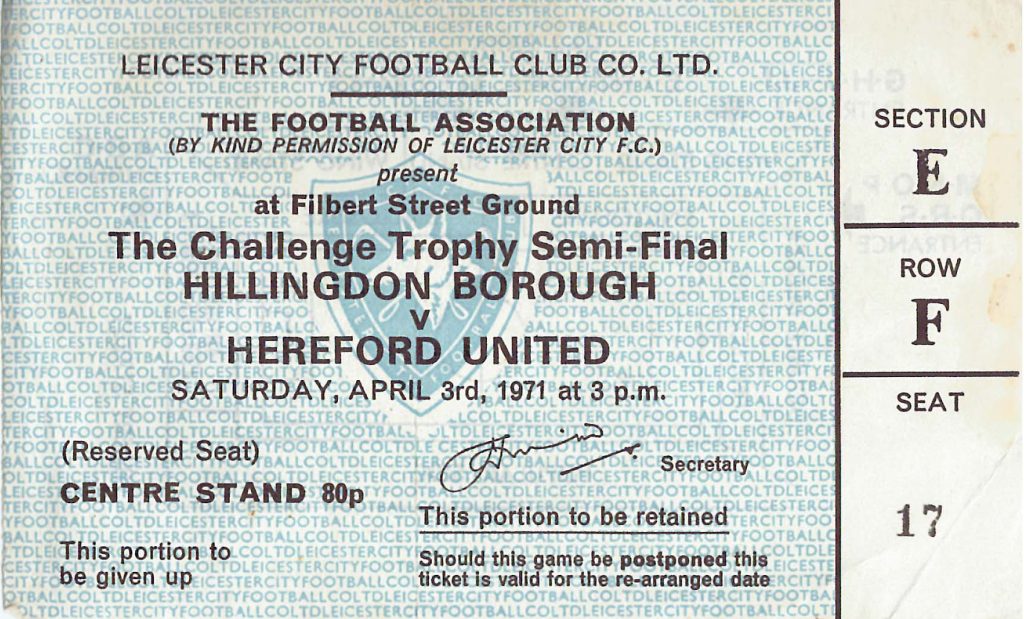
“We were the red-hot favourites to win, Hereford had beaten them twice that season and we took a fantastic amount of supporters to the game, we had the nucleus of the side that would win promotion the following year,” said George.
“The likes of Ken Mallender and Ronnie Radford hadn’t joined yet, but we had Fred Potter in goal, plus Mick McLaughlin, Dudley Tyler and Alan Jones all playing. The script was written for us to win and for the Wembley Final to be John Charles’s swansong, he was in his late 30’s and still playing, he was such a powerful force in our side.”
However, Hillingdon didn’t read the script.
“It turned out to be the biggest anti-climax ever, we were 1-0 down and I missed a great chance to equalise,” explained George.
“It was poor miss. I should have scored. To this day I still think about it, we ended up losing 2-0 and I was devastated. I trudged off the field next to John Charles and I told him how sorry I was. It showed the class of the man when he said in his welsh accent, ‘Oh don’t worry I’ve seen Omar Sivori miss easier chances’ (Sivori was Charles strike partner at Juventus). He was such a great man and he must have been hurting badly. I was absolutely devastated and here he was trying to make me feel better.”
The dressing room was a sorry sight.
“That was the only time I saw Billy Meadows cry, he was distraught, he really wanted to play at Wembley and the second season in a row he had been knocked out in the semi-finals, we both never made it to the twin towers in our careers,” added George. “It wasn’t a great time for me as I felt the Hereford fans thought signing me was a mistake, the season finished and I think we were in the top four, but it’s a bit of a blur to be honest as I was gutted to miss out on playing at Wembley.”
George and Meadows trained together at Barnet ahead of the 1971/1972 season. They returned to Hereford and it was a trip to Shropshire, for a pre-season friendly away at Shrewsbury Town in August 1971. They walked on to the pitch and saw John Charles stood on the centre circle.
“I remember it clearly, the weather was glorious and the sun was beating down,” said George.
“Billy (Meadows) walked up to him and said, ‘can I have a word Charlo’?. John loved Billy and as soon as he saw us, he said in that unique welsh accent with a massive smile on his face ,’here they come, it’s the Cockney Mafia’. John told us that he was now full time at the club and that he was in full control and if we wanted anything to let us know. Billy asked John for a £10 raise. John chuckled and said you need to speak to the chairman.”
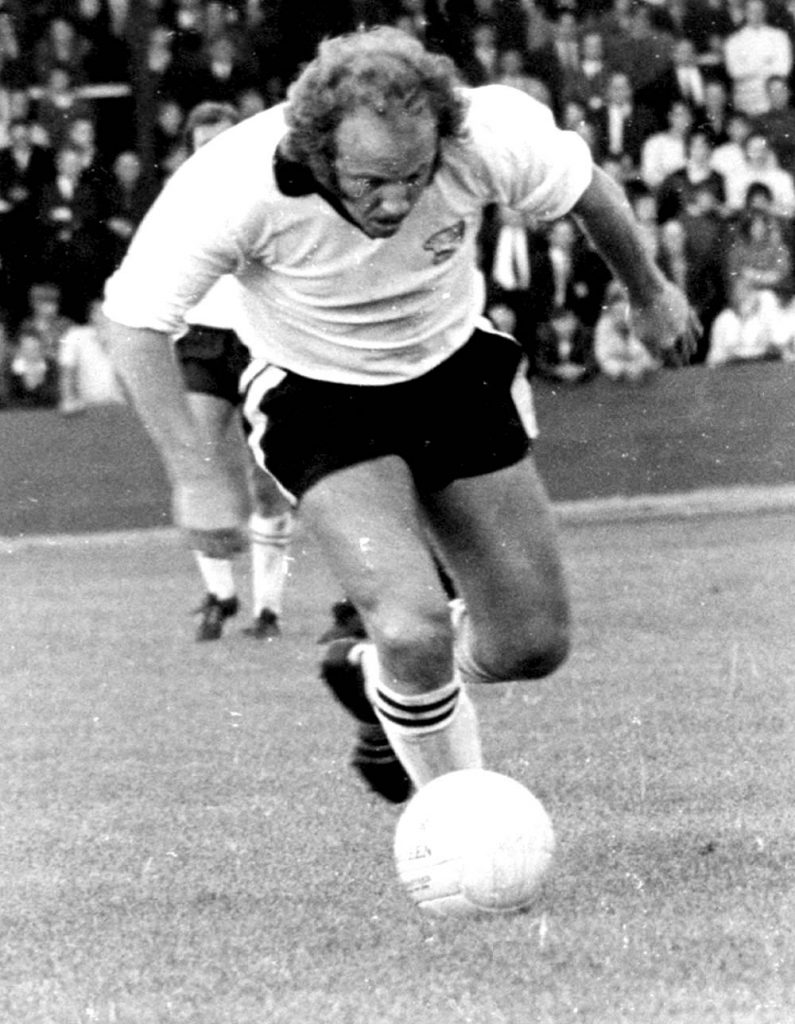
Hereford started the season well, but Charles left in September 1971. “He was such a lovely man, very self-depreciating and there was no arrogance about him, he was just so modest, we were all devastated when he left,” said George.
Colin Addison would replace John Charles as Hereford manager.
“Colin was completely different, he made things a lot more professional, bear in mind he was playing in the old First Division with Sheffield United before he joined us,” explained George.
Hereford went on the start of a cup run which would become one of the greatest in the history of the competition.
“We beat Cheltenham Town in the qualifying round and in the First Round Proper knocked out King’s Lynn in a replay,” said George. “We then played Northampton in the Second Round. We drew at Edgar Street and then drew again at their ground. Back then, you would play a third match at a neutral venue which was the Hawthorns (West Brom’s stadium). We won 2-1, Ken Mallender scored a very late equaliser to take it into extra time. I remember his celebrations and nobody could catch him. Dudley Tyler won it for us, we knew the winners would play Newcastle by then.”
Hereford would face the might of Newcastle United at St James Park in the FA Cup Third round.
“The original match was meant to be on a Saturday, but it got called off,” added George.
“We were at a hotel having a pre-match meal when we heard the news. David Icke was our reserve goalkeeper then and we roomed together. I always tell the joke that he became a different man when he woke up after rooming with me.”
The game was rearranged for a midweek fixture on January 24, 1972.
“The eyes of the country were on us,” added George. “Myself and Billy had travelled up from London, the likes of Brian Owen and Tony Gough from Bath and Alan Jones from South Wales. We went out onto the pitch to take a look. I remember Colin Addison told us to keep our heads up and that we belonged there, he kept telling us we were good enough to put in a fantastic performance.”
Hereford took a shock lead through Brian Owen.
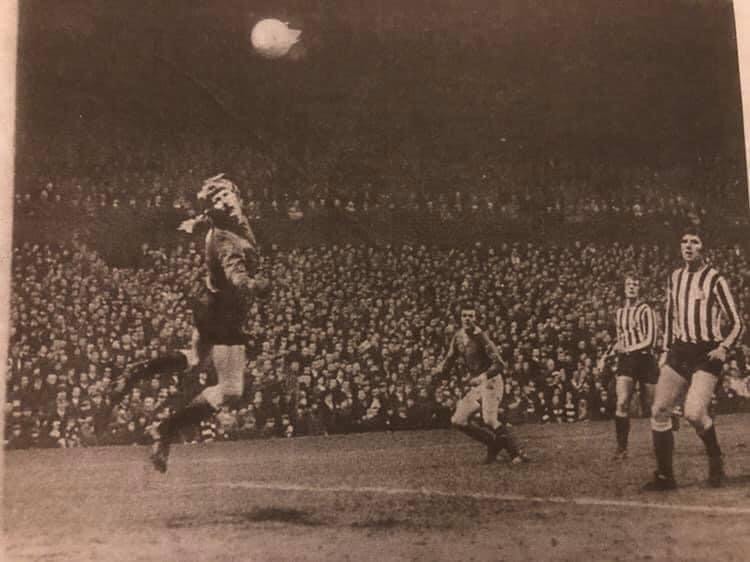
“It was an incredible atmosphere, one of the grandstands at St James Park was being built, but three sides were crammed with around 40,000 fans,” said George.
“We kicked off and took the lead within 17 seconds. Ronnie Radford’s goal will be shown forever, but Brian Owen’s goal at St James Park wasn’t too bad. He whacked a missile into the top right-hand corner. I remember some of the Newcastle fans applauding it. I knew we had to be ready for the charge of the light brigade and they came back and went 2-1 up. Then just before half time, Colin Addison makes it 2-2 with a crisp half volley. I came on during the second half with 20 minutes to go. Colin (Addison) told me to have a go at their full back and put the pressure on. We nearly won it at the end through Billy Meadows. He went close with a diving header, but it was back to Edgar Street for the replay.”
Hereford would hold the Division One side to a 2-2 draw.
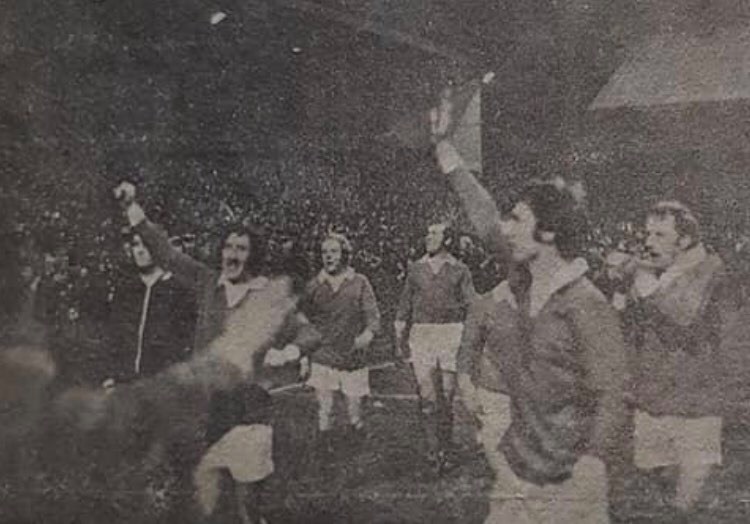
“We deserved it, the pitch was perfect and when people say we only beat Newcastle because of a muddy pitch I like to remind them that we held them at their place,” explained George.
“Before the game, myself and Billy met John Motson who was commentating on the radio for the BBC. I had first met John when he was working for a local newspaper in Barnet, we stayed up late that night and headed back to London in the morning together.”
The replay was called off several times, but finally was played on February 5, 1972.
“By the time we played, it was the date of the Fourth Round,” said George. “Myself and John Motson were staying in the Green Dragon as we had travelled down together, the rest of the squad were at the Three Counties Hotel.
“Whilst travelling down with John (Motson), I was able to give him a pen pic of every Hereford player. We had our dinner and had a stroll. We got back around 10.30pm the night before the game. The bar was full of journalists. Jackie Milburn, the former Newcastle legend, was there – he was reporting for the News of the World. Another north east legend, Len Shackleton, was at the bar too. I was introduced to Jackie Milburn and we shook hands. Jackie told me, ‘it’s lads like you that made me give up football management’. I asked him why and he replied, ‘you should be in bed’. I said I was only a sub, and in a fantastic Geordie accent, he replied ‘Sub! Sub! Only sub!. You may come on and score the winning goal'”.
Hereford were now at home and taking on top flight opposition.
“I think the attendance was around 15,000, but there were supporters watching from trees and street lights,” said George.
“We were giving a good account of ourselves and the defence were holding firm. Malcolm MacDonald put Newcastle ahead on 82 minutes with a superb header and most people thought that was us. finished, Colin Addison put me on for Roger Griffths, who unbeknown to us had broken his leg, I came on and I knew I had to do something. I ran around to try and hustle the Newcastle defence and won back possession. The ball then got played out and then cleared, Ronnie then plays this one-two with Brian Owen and I can see from my position on the left-hand side that Ronnie is going to shoot and he unleashes this fantastic goal of the century shot that goes in. In my mind I’m thinking I’m delighted. I’ve got another 30 minutes to play and show what I can do.”
Hundreds of kids in parka jackets invade the pitch and once it’s cleared. the game ends 1-1 after 90 minutes. I ask George what Colin Addison’s team talk was like.
“Colin has always been a great talker and he was telling us how good we were and that we could beat them,” he said.
The game would enter extra time and George scored the winning goal in the 103rd minute.
“Dudley Tyler had the ball on the edge of the area,” explained George.
” I think it was a shot, but he will probably say it was a cross. He didn’t catch it too well and it came to me at pace. My thought was to turn on the ball and try and get a shot in. When I swivelled, I realised I had a lot more space than I first thought so instinctively took a shot. I just looked up and saw the ball flying past the Newcastle goalkeeper Iam McFaul and we celebrated accordingly.”
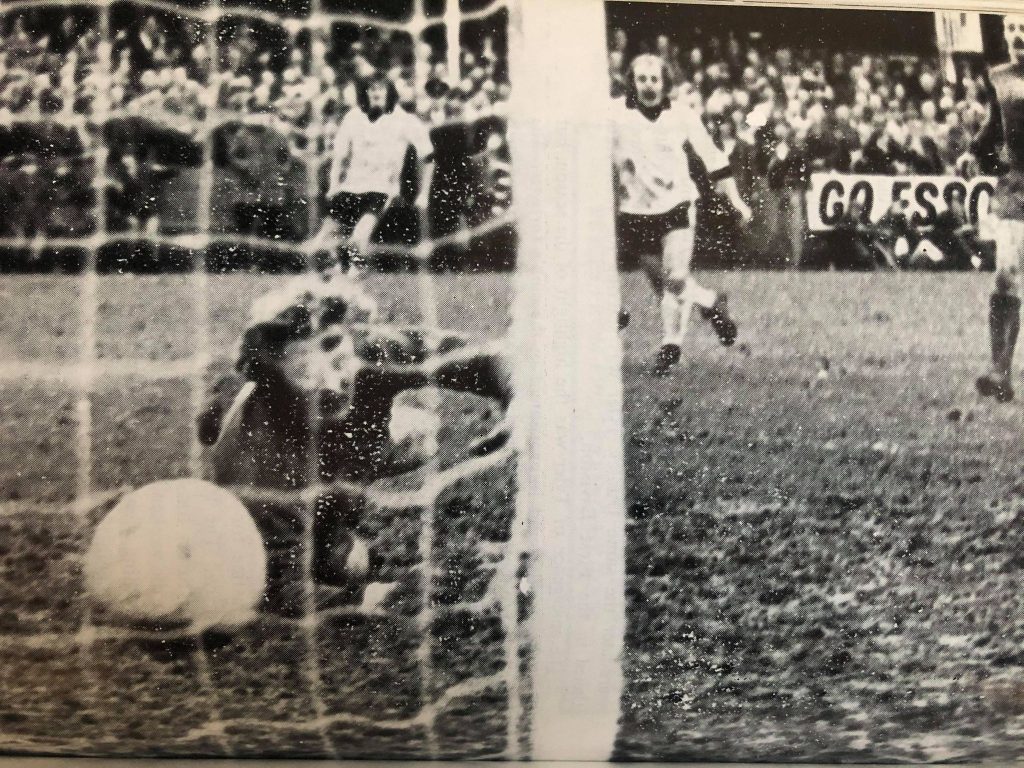
Hereford were the better side during extra time and Brian Owen nearly made it 3-1
“My goal killed Newcastle off, their legs had gone and we had the adrenalin to see the game out,” added George.
“When the final whistle went there were fantastic scenes and in the dressing room photographers were taking pictures of us. Myself, Ronnie Radford and Colin Addision were then interviewed by John Motson and I told the story about Jackie Milburn from the night before. After that, we went to the bar for a quick drink and then at around 7.30 myself, Billy Meadows and John Motson headed back to London to watch Match of the Day.”
“Due to our win being a massive giantkilling, the game was promoted to the main match and at Billy Meadows’ house, myself and John Motson watched the game with a plate of fish and chips and a few cans of lager. It was brilliant watching the game on television, you don’t expect to see yourself on Match of the Day and we stayed up late that night celebrating.”
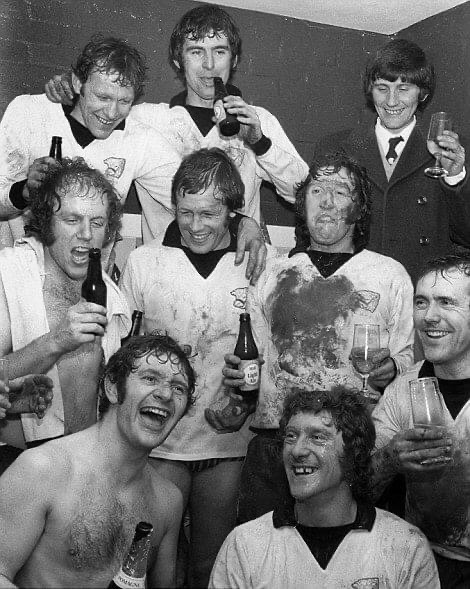
Hereford would play West Ham in the Fouth round at Edgar Street on February 9, 1972. I asked George how his day job worked around football.
“I was working for adidas in their PR department, my area was London and I was a sales rep. The goal against Newcastle didn’t do the business any harm at all,” he said.
George remembers the West Ham players.
“They had Bobby Moore, Billy Bonds, Harry Redknapp, Geoff Hurst and Clyde Best,,” he said. “the pitch was a lot firmer, the weather had got colder and it wasn’t the mud heap it was a few days earlier. I was in the first 11 now and Billy Tucker replaced me as substitute. We had a chance to win but Brian Owen hit the woodwork. I remember Billy Meadows was trying to unsettle Bobby Moore, Billy gave Bobby a kick which he shrugged off. Bobby said to him, ‘who do you think you are, Pele? Billy replied. ‘I would have been if I could run’, Billy was hugely under-rated, he just didn’t have any pace, due to his knees and cartilage problems.”
The game ended 0-0 and it was off to London on the 14th February 1972 for the replay.
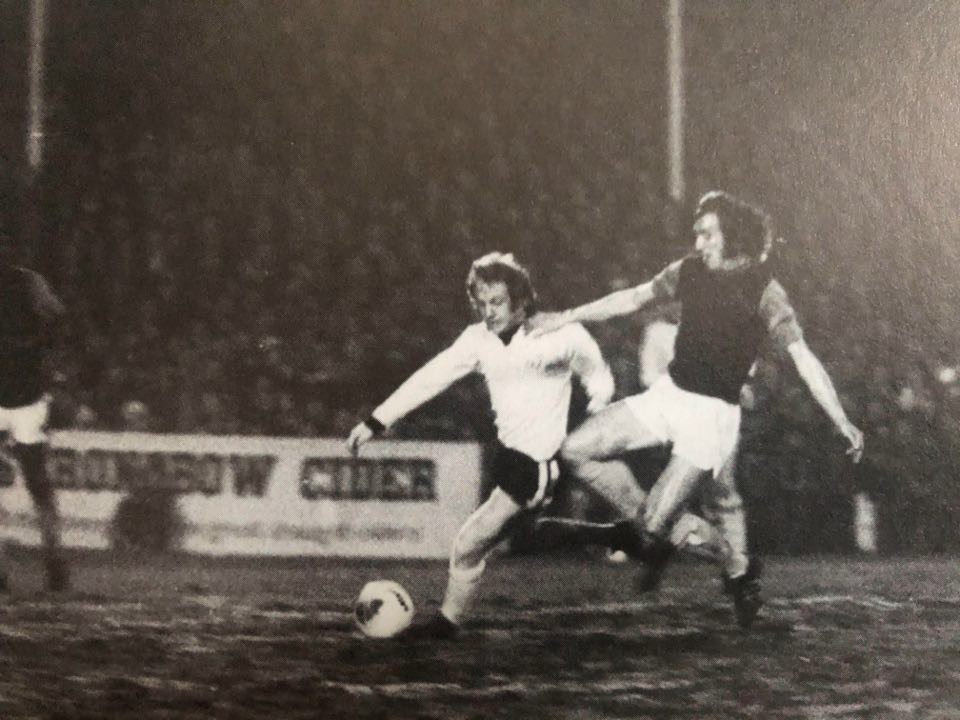
“We stayed in this luxury hotel next to the American Embassy,” said George. “The game had a lot of attention. It was during the time of the three-day week so was played in the afternoon. We should have left the hotel for the ground earlier as we got delayed in horrendous traffic. We had to go in a police van to get to the ground. There was 42,000 in the stadium and around 10,000 locked outside. The atmosphere was amazing.”
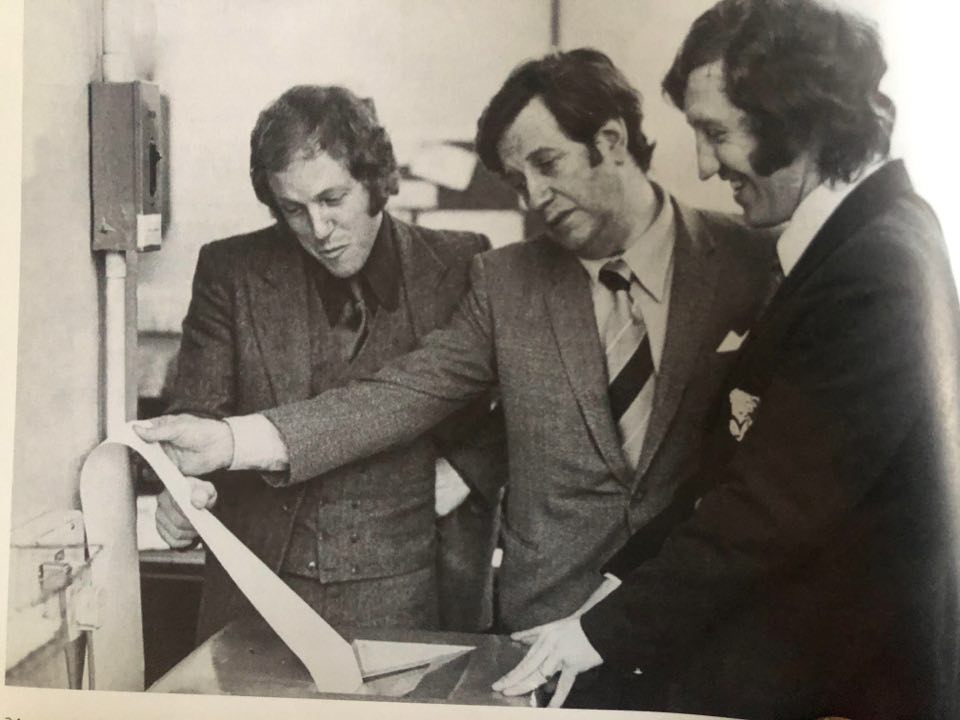
George had a chance early on to give Hereford the lead.
“Even when I watch the footage now, I keep thinking the ball is going to hit the back of the net,” added George. “In my later years, I tend to look back at the chances I missed, it just skidded past the goal.”
Geoff Hurst would then score a hat trick to put West Ham 3-0 in front.
“He only scored hat tricks in special matches,” joked George.
” Billy Meadows scored a late consolation goal. The whole ground applauded it, those were special times and the West Ham fans were tremendous. In the players’ lounge after the game, I was with my wife and the barman asked her what she wanted to drink. She said champagne, the barman said they only have bottles of beer for the men, or grapefruit juice for the women. Geoff Hurst mentioned it in his column for the Evening Standard. He said Hereford wanted to go out in style with champagne.”
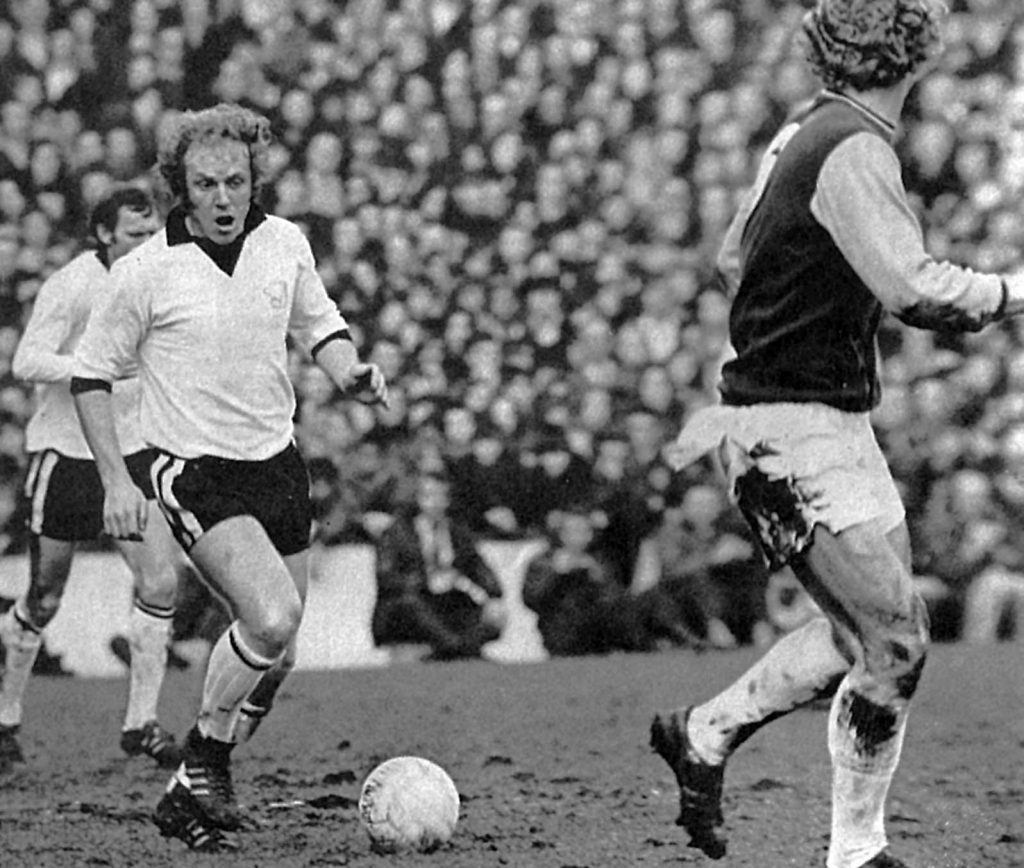
The cup run was over, but it gave Hereford a huge profile. They still had the league to concentrate on, They would finish second and applied for election to the Football League. After initially being tied on the first vote, Hereford were voted in and replaced Barrow. Sadly, George wouldn’t be part of the new journey.
“Hereford wanted to go full time and I was living in London,” he said. ” My wife had a job too and we were planning to start a family. I wasn’t offered terms so the decision was easy to make, we parted amicably and it was great to see the squad win another promotion the following season.”
George would continue his football on a non-league basis.
“I wanted to go back to Barnet, but ended up signing for Stevenage,” he said. “I thought Barnet would call me, but they never did. I played in an FA Trophy game for them early in the season. I eventually finally joined Barnet later in the season, but It meant my Wembley dream couldn’t happen as I was cup tied when Barnet reached the final.”
George later played for Wimbledon and Boreham Wood and packed in football in the late 1970s. He achieved worldwide fame when his horse Earth Summit won the 1998 Grand National and was regularly involved in Hereford United reunions. He wrote a book called One Goal One Horse and returned to Hereford in 1999 with the FA Cup when the Bulls faced Leicester City in the 3rd round.
“I’m hoping to get the book republished or available on Kindle soon,” he said.
George was a regular back at Edgar Street for reunions, He also worked alongside Keith Hall for BBC Hereford and Worcester and managed the HUST Fans team against Hitchin in 2017.
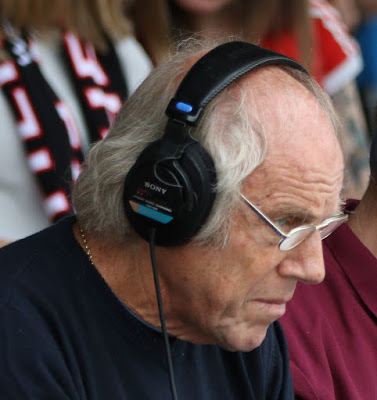
I wrapped up the interview up by asking George what message he has for the Hereford players ahead of the Woking FA Trophy game.
“Tony Gough always used to say at every reunion that we will always be a part of Hereford, but Hereford will always be a part of us. I just want to say to the current Hereford players, that even though Edgar Street will be empty on the day, all of the city will be with you. Do it for the fans. Hereford is a great place, with great people and they are the best supporters in the world.”
*Photos supplied by Ron Parrott, Bulls News, Dave Edge, Denise Powell. Hereford United Images of Sport,. Thank you to Paul Rogers for his help as well*

